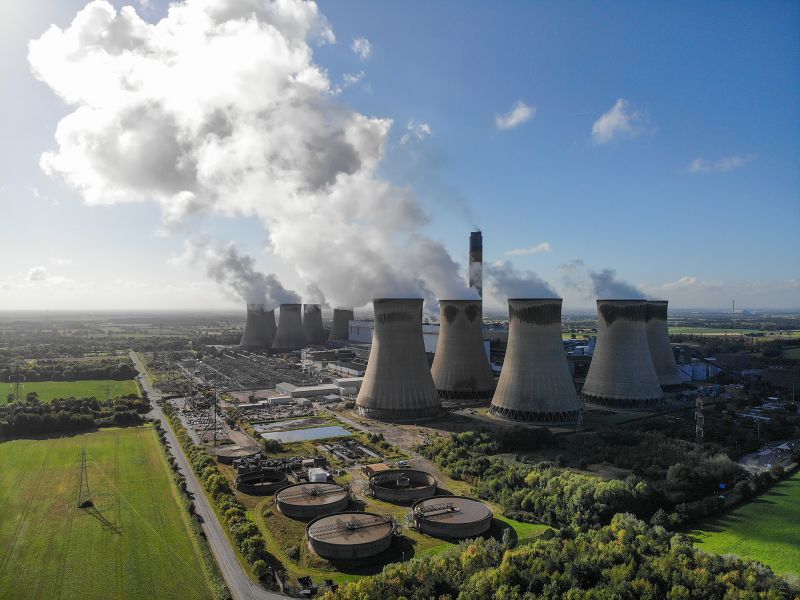
UK Government Greenlights a Radical $2.5B ‘Carbon Negative’ Power Plant Amid Controversy!
The United Kingdom government has recently granted approval for a ground-breaking $2.5B project for a carbon negative power plant. This controversial decision reflects the country’s pursuit of greener and more sustainable energy options, attempting to address one of the world’s most challenging global crises—climate change.
The proposed power plant project, coined as carbon negative, revolves around the concept of Carbon Capture, Use, and Storage (CCUS). The CCUS technology is designed to capture carbon dioxide emissions from fossil fuel use, preventing them from entering the atmosphere, and subsequently reusing or storing them. This significant technological advancement aims to reduce the UK’s overall greenhouse gas emissions, which contribute to climate-warming activities.
The $2.5B green project is a promising initiative by the UK government to not only transform its power generation capabilities but also redefine its carbon footprint. However, the grand project has sparked considerable controversy mainly concerning its feasibility and environmental implications.
Critics of the project argue about the economic feasibility of the project, particularly as the UK, like many other nations across the globe, is grappling with the economic fallout of the COVID-19 pandemic. Questions around the project’s viability were fueled by the fact that the price tag for such an innovative measure is undoubtedly formidable.
Part of the controversy also revolves around the CCUS technology itself. While the technology is touted as a beacon for an environmentally-friendly future, there is serious debate about its efficacy. Many environmental activists argue that an over-reliance on CCUS technologies might divert attention and resources from the ultimate goal of reducing carbon emissions at their source, primarily through renewable energy measures and shifting towards a less carbon-intensive economy.
Moreover, concerns about the storage and reuse of captured carbon bring about another controversy. The carbon captured needs to be stored indefinitely to prevent leakage back into the atmosphere and contribute to future warming. However, finding suitable storage locations and ensuring their safety is a mammoth task with potential environmental implications not fully understood.
Nevertheless, supporters believe this carbon negative power plant can serve as a blueprint for how countries can innovate in their energy production to meet respective emissions targets. They argue that by utilizing fossil fuels more responsibly and efficiently through technologies like CCUS, we can transition towards a greener future.
The UK government’s move towards investing in cutting-edge, although controversial, initiatives like the “carbon negative” power plant indicates a commitment to a future less reliant on traditional forms of energy. With an eye towards their 2050 net-zero emissions target, the approval for this project may prove to be either a progressive step or a costly miscalculation.
As controversial as it may be, the project panders to the pressing need to address climate change in every possible way. The UK government has shown willingness to explore uncharted waters in its fight against climate change. Indeed, the project presents a blend of promise and controversy, marking a need for more comprehensive discussions surrounding such technological interventions in the future.
